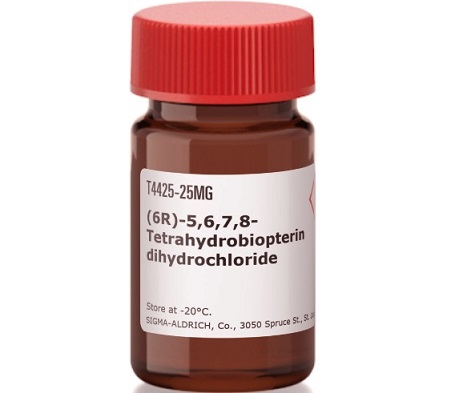Brazilian Study Finds That Tetrahydrobiopterin is a Promising Therapeutic for Autism Spectrum Disorder
Nikhil Prasad Fact checked by:Thailand Medical News Team Feb 05, 2025 2 months, 1 week, 1 day, 7 hours, 33 minutes ago
Medical News: Autism Spectrum Disorder (ASD) is a neurodevelopmental condition that affects social interactions, communication, and behavior. It varies widely in severity, making it a challenge to diagnose and treat. Currently, there is no cure for ASD, and existing treatments primarily focus on managing symptoms rather than addressing underlying biological mechanisms.
 Tetrahydrobiopterin is a Promising Therapeutic for Autism Spectrum Disorder
Tetrahydrobiopterin is a Promising Therapeutic for Autism Spectrum Disorder
A group of researchers from the Federal University of Santa Catarina in Brazil have conducted a systematic review that is covered in this
Medical News report, exploring a potential new approach to ASD treatment involving tetrahydrobiopterin (BH4). BH4 is a naturally occurring compound essential for producing key neurotransmitters such as dopamine and serotonin. These neurotransmitters play crucial roles in regulating mood, cognition, and social behavior.
Tetrahydrobiopterin and Autism
The research team reviewed multiple studies to determine if BH4 metabolism is altered in individuals with ASD. They analyzed data from four major medical databases covering research conducted from 1967 to 2021. Their findings revealed that people with ASD often have lower levels of BH4 in their cerebrospinal fluid compared to individuals without ASD. Additionally, they observed increased levels of neopterin, a marker of inflammation, in urine and blood samples, suggesting that immune system dysfunction may contribute to ASD symptoms.
One of the critical discoveries in the review was that BH4 supplementation could improve behavioral symptoms in individuals with ASD. Several clinical trials have shown that children who received BH4 treatment exhibited better communication skills, improved eye contact, and increased social interaction. The results were more pronounced in children who initially had lower BH4 levels.
How BH4 May Help in Autism Treatment
BH4 is essential for the production of neurotransmitters that regulate mood and cognitive function. In individuals with ASD, decreased BH4 levels may lead to imbalances in dopamine and serotonin, which are linked to social difficulties and repetitive behaviors commonly seen in autism. By supplementing with BH4, researchers believe that it may be possible to restore proper neurotransmitter function and alleviate some of the symptoms of ASD.
One of the studies reviewed included a double-blind, placebo-controlled trial in which children with ASD were given BH4 for 16 weeks. The results indicated significant improvements in social awareness, language abilities, and reduced repetitive behaviors. Additionally, another study found that BH4 supplementation increased dopamine and serotonin levels in the brain, further supporting its potential role in managing ASD symptoms.
Challenges and Future Research Directions
While the findings are promising, researchers caution that more large-scale studies are needed to confirm the effectiveness of BH4 as a treatment for ASD. One limitation of existin
g studies is the small sample size, making it difficult to determine whether BH4 works for all individuals with ASD or just specific subgroups. Additionally, the long-term effects of BH4 supplementation need to be better understood.
Researchers also emphasize the importance of identifying biomarkers to determine which individuals with ASD may benefit the most from BH4 therapy. Since not all individuals with ASD show low BH4 levels, targeted treatment approaches may be necessary to ensure that those who need it receive the appropriate intervention.
Conclusion
The study findings suggest that BH4 plays a vital role in brain function and that its deficiency may contribute to the symptoms of ASD. BH4 supplementation has shown promise in improving communication, social interaction, and reducing repetitive behaviors in individuals with ASD. However, more extensive clinical trials are required to confirm these findings and establish standardized treatment protocols. If further research supports its benefits, BH4 could become a valuable addition to the existing treatment options for ASD.
The study findings were published in the peer-reviewed journal: Brain Sciences.
https://www.mdpi.com/2076-3425/15/2/151
For the latest on Autism, keep on logging to Thailand
Medical News.
Read Also:
https://www.thailandmedical.news/news/ai-in-medicine-university-of-southern-california-develops-ai-platform-that-helps-in-the-early-diagnosis-of-autism-via-a-five-minute-ipad-coloring-game
https://www.thailandmedical.news/news/ai-in-medicine-university-of-louisville-develops-new-ai-platform-that-can-diagnose-autism-much-earlier-and-with-98-5-percent-accuracy
https://www.thailandmedical.news/news/study-shockingly-reveals-that-england-s-actual-autism-numbers-could-be-double-official-figures
https://www.thailandmedical.news/news/alarming-link-found-between-rising-lithium-levels-and-autism-rates-uncovering-the-hidden-dangers-in-our-tap-water
https://www.thailandmedical.news/news/warning-medical-cannabis-use-during-pregnancy-increases-risk-of-autism-in-children
